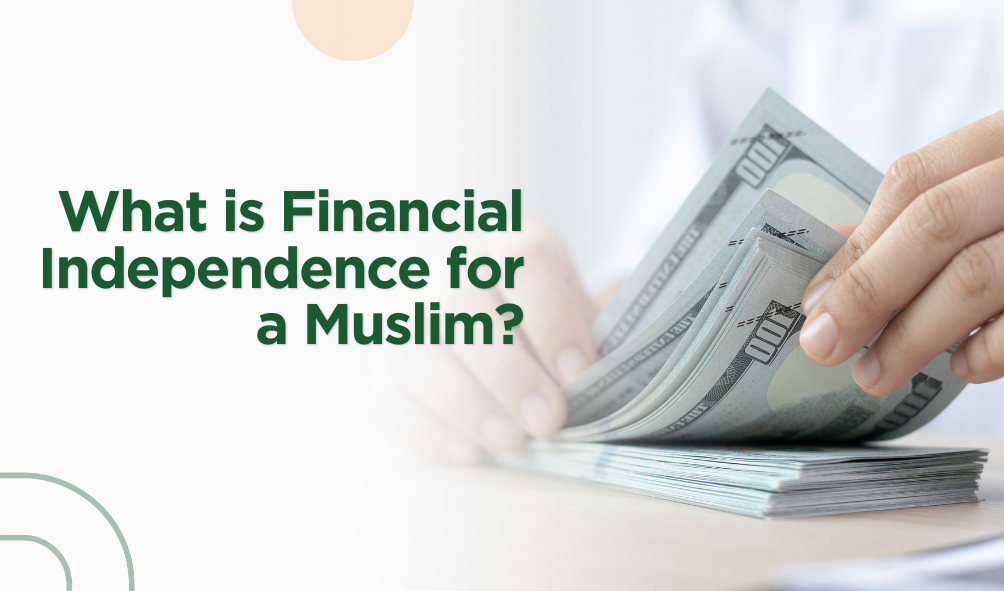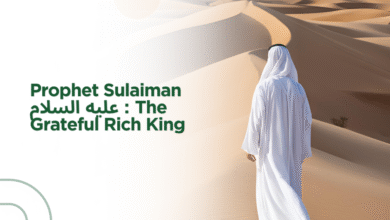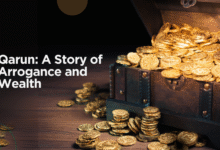What is Financial Independence for a Muslim?
Financial independence is a state where an individual has enough financial resources to meet their needs without relying on continuous income sources. In the Islamic perspective, financial independence is not just about accumulating wealth; it’s about how that wealth is earned, managed, and utilized in accordance with Islamic principles.
Islam views wealth as a trust from Allah that must be managed wisely and responsibly. A financially independent Muslim is one who can fulfill their needs and those of their family without violating the laws of Allah. They also contribute to helping others through zakat, sadaqah, and various other forms of charity. Therefore, the purpose of this article is to provide an understanding of how a Muslim can achieve financial independence in accordance with Islamic teachings and the practical steps that can be taken to attain it.
Fundamental Principles of Finance in Islam
Avoiding Riba
One of the most important financial principles in Islam is the prohibition of riba (interest). Riba, or interest, is an additional charge imposed on loans and is strictly prohibited in Islam because it is considered a form of exploitation and injustice. In the Qur’an, Allah clearly forbids the practice of riba, and the Prophet Muhammad (peace be upon him) also warned his followers about the dangers of riba. Avoiding riba is the first step toward financial independence, as this practice can trap individuals in a cycle of debt that is difficult to escape.
Zakat and Sadaqah
Zakat and sadaqah are essential instruments in the Islamic economic system. Zakat is obligatory for every able Muslim, with the aim of purifying wealth and helping those in need. Sadaqah, although not obligatory like zakat, is also highly encouraged as a form of generosity and charity. By fulfilling zakat and sadaqah, a Muslim not only purifies their wealth but also contributes to the overall welfare of society. It is also a means of drawing closer to Allah and gaining blessings in one’s wealth.
Ownership and Trust
In Islam, wealth is seen as a trust from Allah. A Muslim must understand that what they possess is only a temporary trust that must be managed properly and in accordance with Allah’s laws. This concept teaches us not to be greedy or excessive in the pursuit of wealth but to focus on how it can be used for good, both for oneself and others. Ownership in Islam is not just about having wealth but also about the responsibility and integrity in managing it.
Steps Toward Financial Independence
Islamic Financial Planning
The first step toward financial independence is creating a financial plan that aligns with Islamic principles. This includes budgeting to manage expenses and income and ensuring that all financial transactions, including investments and financing, are conducted in accordance with Shariah principles. Managing finances wisely and with discipline is key to achieving financial stability.
Managing Debt in Islam
Debt is one of the common issues that hinder someone from achieving financial independence. In Islam, taking on debt is permissible as long as it is used for a valid purpose and repaid on time. However, Islam also encourages avoiding debt whenever possible. If one must take on debt, a Muslim should be committed to repaying it according to the agreement. The Prophet Muhammad (peace be upon him) taught that delaying debt repayment can have negative consequences both in this world and the hereafter.
Halal Investments
Investing is a way to grow wealth, but not all forms of investment are permissible in Islam. A Muslim must ensure that the chosen investments are halal and do not involve riba, gambling (maysir), or excessive uncertainty (gharar). Shariah-compliant investments, such as shares in companies that adhere to Islamic principles, real estate, or halal businesses, can be a way to grow wealth without violating Shariah.
Read also:How to Discipline Yourself to Consistently Invest
The Importance of Financial Education and Literacy
Enhancing Financial Understanding
Financial education and literacy are essential aspects of achieving financial independence. A Muslim should have a good understanding of how to manage finances in accordance with Islamic principles. This includes knowledge of financial planning, debt management, investment, and the importance of saving. Financial literacy will help a Muslim make wise financial decisions and avoid financial traps that are not aligned with Shariah.
Teaching Financial Literacy from an Early Age
It is important for Muslim parents to teach their children about finances from an early age. This includes imparting Islamic values about wealth, the importance of saving, and how to use money wisely. By teaching financial literacy from an early age, children will grow up with awareness and responsibility in managing their wealth in the future.
Learning Resources
For Muslims who wish to deepen their financial literacy, there are many resources available, such as books on Islamic finance, online courses, and following experienced Muslim figures in the field of finance. Notable figures in Islamic financial literacy, such as Dr. M. Daud Bakar and Mufti Taqi Usmani, can be great references for learning more about Shariah-compliant financial concepts.
Challenges and Solutions in Achieving Financial Independence
External Challenges
One of the biggest challenges in achieving financial independence is the influence of the global economy. Market fluctuations, inflation, and economic uncertainty can impact an individual’s financial stability. Additionally, the dominant conventional financial system often does not align with Islamic principles, so a Muslim needs to be cautious in selecting halal financial products.
Internal Challenges
On the other hand, internal challenges such as a consumerist lifestyle and a lack of discipline in managing finances also hinder the achievement of financial independence. Many people fall into the trap of fulfilling wants rather than needs, which ultimately harms their financial condition. Self-control and adherence to the principle of simple living are solutions taught by Islam.
Islamic Solutions
In facing these challenges, Islam offers a balanced approach between spirituality and practicality. Strengthening the relationship with Allah through worship, prayer, and reliance on Him, while continuing to strive in halal ways, is the best way to address financial challenges. Discipline, patience, and the belief that sustenance is in the hands of Allah will help a Muslim on the journey toward financial independence.
Conclusion
Financial independence is an important goal for every Muslim, not only to achieve worldly prosperity but also to attain blessings from Allah. By understanding and applying Islamic financial principles, a Muslim can manage wealth wisely, avoid riba, and invest in halal ways. The challenges in achieving financial independence are real, both from external and internal factors, but with good education, discipline, and reliance on Allah, every Muslim can achieve it. May this article provide motivation and a beneficial guide in the journey toward financial independence that is blessed by Allah.

References
Siddiqi, M. N. (2004). Riba, Bank Interest, and the Rationale of Its Prohibition. Islamic Research and Training Institute.
The Qur’an. (n.d.). Translation of the Qur’an. Retrieved from https://quran.com/
Bakar, M. D. (2016). Shariah Minds in Islamic Finance. Amanie Media.
Chapra, M. U. (1985). Towards a Just Monetary System: A Discussion of Money, Banking, and Monetary Policy in the Light of Islamic Teachings. The Islamic Foundation.
Usmani, M. T. (2002). An Introduction to Islamic Finance. Kluwer Law International.
Hassan, K., & Lewis, M. (2007). Handbook of Islamic Banking. Edward Elgar Publishing.
Kahf, M. (1995). Islamic Economics: What It Is and How It Developed. Islamic Research and Training Institute, Islamic Development Bank.







